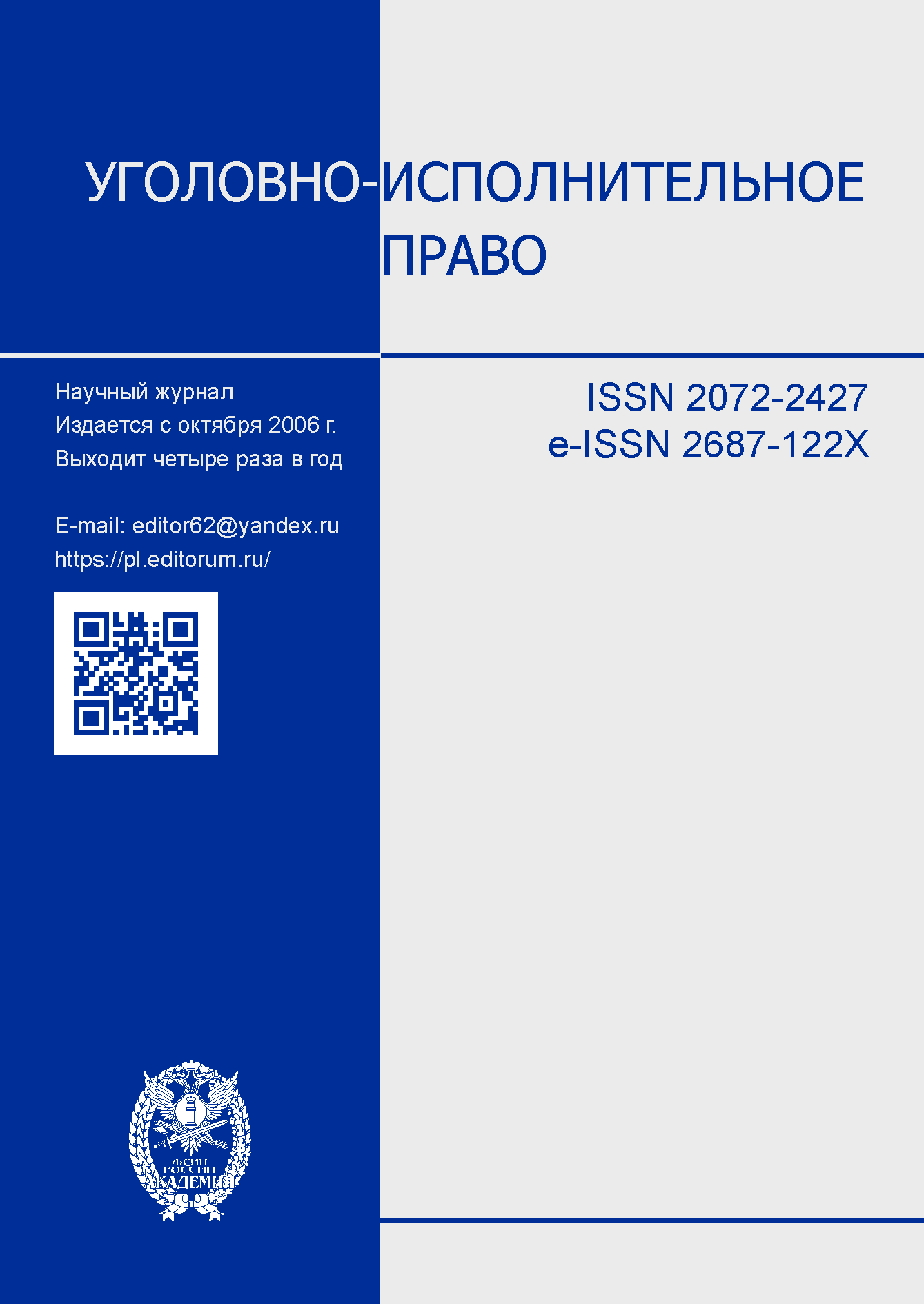The article examines the features of philosophical concepts in the field of androgyny as a stage of its genesis and androgynous discourse, as well as the current state of the problems of the institution of non-binary gender identity of a convicted person. The authors revealed the importance of biological sex for serving a sentence of imprisonment in Russia, reflected the legal problems of ensuring the personal safety of persons with the specified identity in the institutions of the penal system executing a sentence of imprisonment. At the present stage, there is a traditional contradiction between the need to respect the rights and freedoms of every person, to overcome the obvious social exclusion to persons with non-binary gender identity who have officially changed their gender identity (transgender), and the legal regulation of the legal aspects of serving sentences, ensuring personal safety in penitentiary institutions. In order to ensure the personal safety of persons with non-binary gender identity who have undergone a medical procedure of sexual reorientation, and the election of a penitentiary institution to serve a sentence of imprisonment on the appropriate gender basis, it is necessary to adopt legislative acts regulating relations in the field of serving sentences and ensuring the personal safety of these persons.
criminal punishment, imprisonment, penitentiary institutions, convict’s personality, gender approach, non-binary gender identity, transgenderism, penitentiary security, personal security
1. Hailey, O. 2015, ‘Genderqueer: What It Means’, Ursidae: The Undergraduate Research Journal at the University of Northern Colorado, vol. 4, iss. 3.
2. Begeza, V. V. 2017, ‘National Security: Concepts, content, meaning’, Bulletin of the National Institute of Business, iss. 28, pp. 269-274.
3. Bern, S. 2008, Gender psychology, Laws of male and female behavior, Prime-EUROZNAK, St. Petersburg.
4. Izrina, S. O. 2022, Androgyny in the space of modernity: cultural philosophical analysis: PhD thesis, St. Petersburg.
5. McIntosh, A. 2020, ‘How to live a transgender transition and stay (based on the materials of a speech at the scientific and practical conference “Without Censorship” on May 18-19, 2019, Moscow)’, Psychology and Psychotherapy of the family, iss. 3-4, pp. 45-52.
6. Platonov, I. V. 1856, Introductory concepts in the doctrine of landscaping and state deanery, Kharkiv.
7. Safronov, V. V., Startseva, O. I., Adamyan, R. T. & Ibregimova, M. R. 2021, ‘Prevalence of transsexualism in the world’, Plastic surgery and Aesthetic Medicine, iss. 4, pp. 69-76.
8. Skiba, A. P., Myakhanova, A. N. & Pakhorukov, A. A. 2020, ‘Some problems of execution of sentences in relation to convicts with sexual identification disorder: Russian, international and foreign aspects’, Penal Enforcement system: Law, Economics, Management, iss. 6, pp. 9-13.
9. Stanchenkova, Ya. Yu. 2019, ‘Features of gender identity in transgender people with assigned male gender’, Young Scientist, iss. 51.1, pp. 35-38.
10. Tobolevich, O. A. 2008, Psychology of gender identity of convicts serving sentences in the form of imprisonment: PhD thesis (Law), Ryazan.
11. Yuzhanin, V. E. & Hallway, L. E. 2018, ‘Separate detention of different categories of persons sentenced to imprisonment’, Bulletin of the Kuzbass Institute, iss. 4(37), pp. 117-124.











